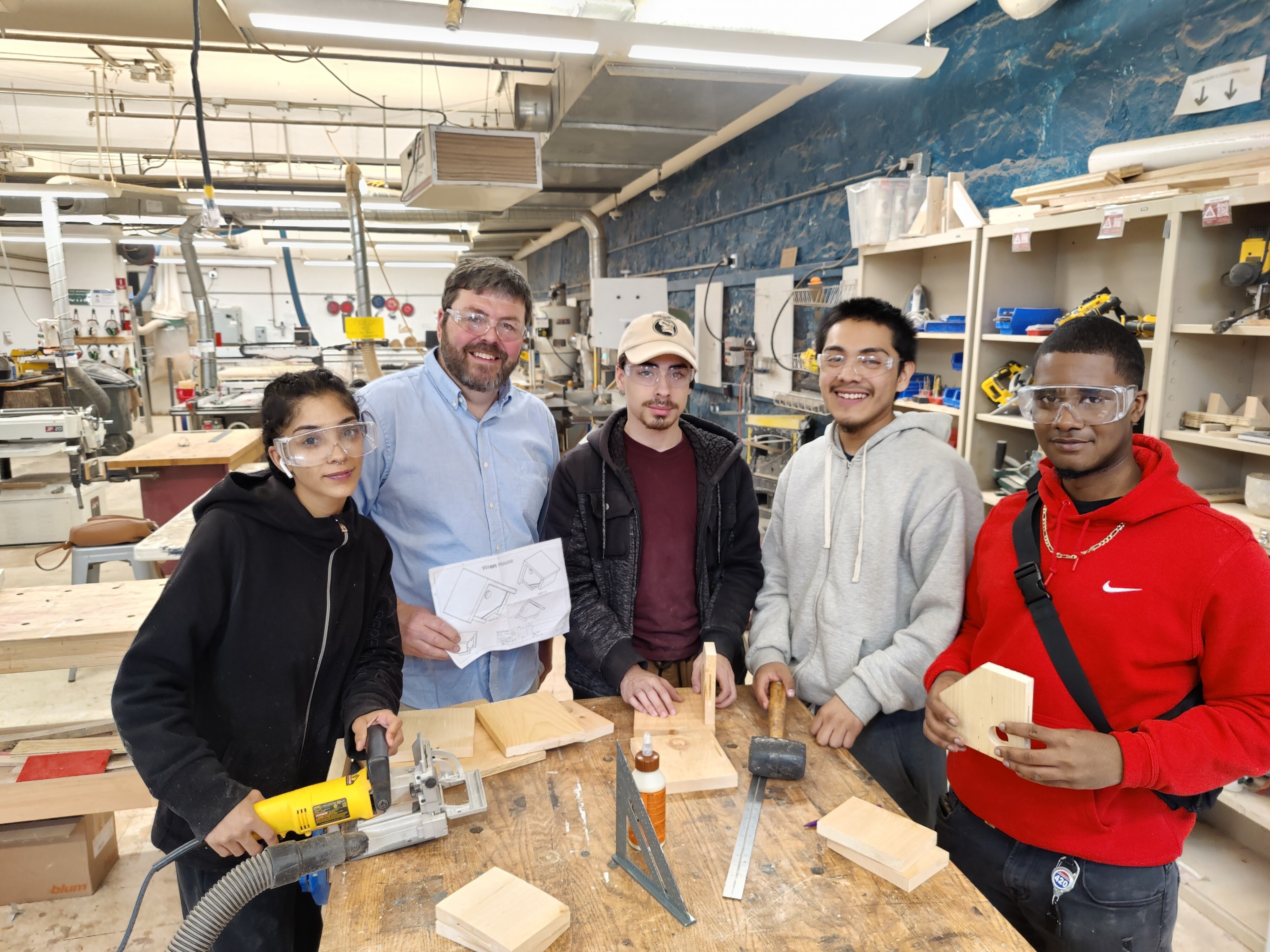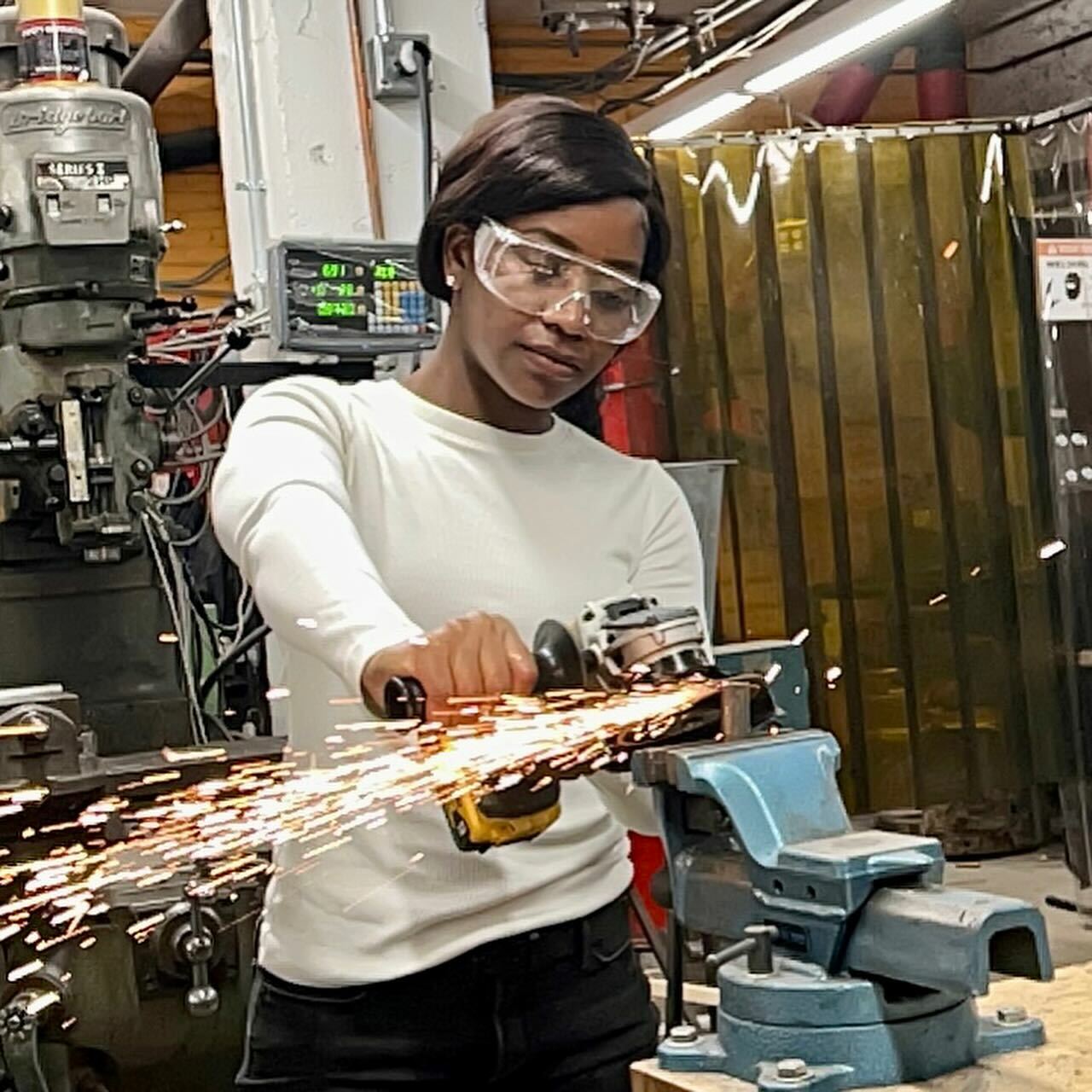Maker Space Builds Community
MakeHaven drives creativity and community in Greater New Haven.

When MakeHaven, a makerspace on Chapel Street in New Haven, first opened its doors in 2012, it attracted a few dozen members. But as demand for creative spaces for hobbyists, inventors, and entrepreneurs skyrocketed in recent years – particularly post-pandemic – membership reached nearly 800 last year, says J.R. Logan, the organization’s executive director.
Logan’s vision is for MakeHaven to serve as a catalyst for creativity and entrepreneurship for the region for both members and the general public. The 12,000-square-foot facility features numerous tools for creative types, including 3D printers, laser cutters, textiles, printing presses, pottery wheels, cast and mold-making machines, welding and blacksmithing tools, and even a media center for podcasters. The facility, which is supported by 40 volunteers, is accessible to members every day of the year. But it’s not just the physical access that Logan values; it’s also financial accessibility.
“We want a low [cost] barrier to entry,” Logan says. While standard memberships cost $60 a month, MakeHaven offers a sliding scale as low as $10 a month for income-eligible members. Logan estimates that nearly one-quarter of members qualify for reduced rates. With help from The Community Foundation for Greater New Haven – which invested a total of $30,000 in MakeHaven over two years – the organization has expanded its educational offerings to include 120 different micro credential badges which reflect a basic ability to use the facility’s various tools.
“Earning a badge is a requirement to demonstrate basic safety in using a tool,” Logan says, noting that last year MakeHaven awarded more than 3,000 micro credential badges. “While [our mission] is not specifically for job training, those [micro credential] skills are often helpful for in-demand jobs,” Logan says, “so our services allow people to explore and build those skills.”

Last year, MakeHaven also hired an education coordinator to better serve members and the public through one- or two-day workshops focused on more technical skills such as using milling or CNC machines. Additionally, MakeHaven has expanded its program to include semester-like courses, including “Pathways to Trades” which provides a deep dive into metalworking and woodworking. “It provides exposure to help people decide if they want to pursue a trade-oriented career.”
Increasingly, Logan is seeing more members using MakeHaven to advance entrepreneurial ventures, a trend he would like to continue. “From member surveys, about 10% of members – roughly 80 people – are trying to build a business using our makerspace,” Logan says, “with half wanting to build an invention and half starting a craft business.” Logan says scaling such business ventures can be challenging, but MakeHaven converted a couple of storefronts in New Haven to enable members to sell their goods – and with modest results. “About 25% of our entrepreneurial members have seen an increase in income as a result of their [membership-related products],” Logan says.
With a modest $600,000 annual budget, Logan says membership has grown steadily through word-of-mouth recommendations and building partnership connections with schools and veterans groups. The most rewarding part for Logan has been the creative community that MakeHaven has brought to life. “It’s great to have a center of creativity where individuals make things with their hands and enrich their lives and the community.”
What inspires you?
Creating a charitable fund makes a difference now and forever.
